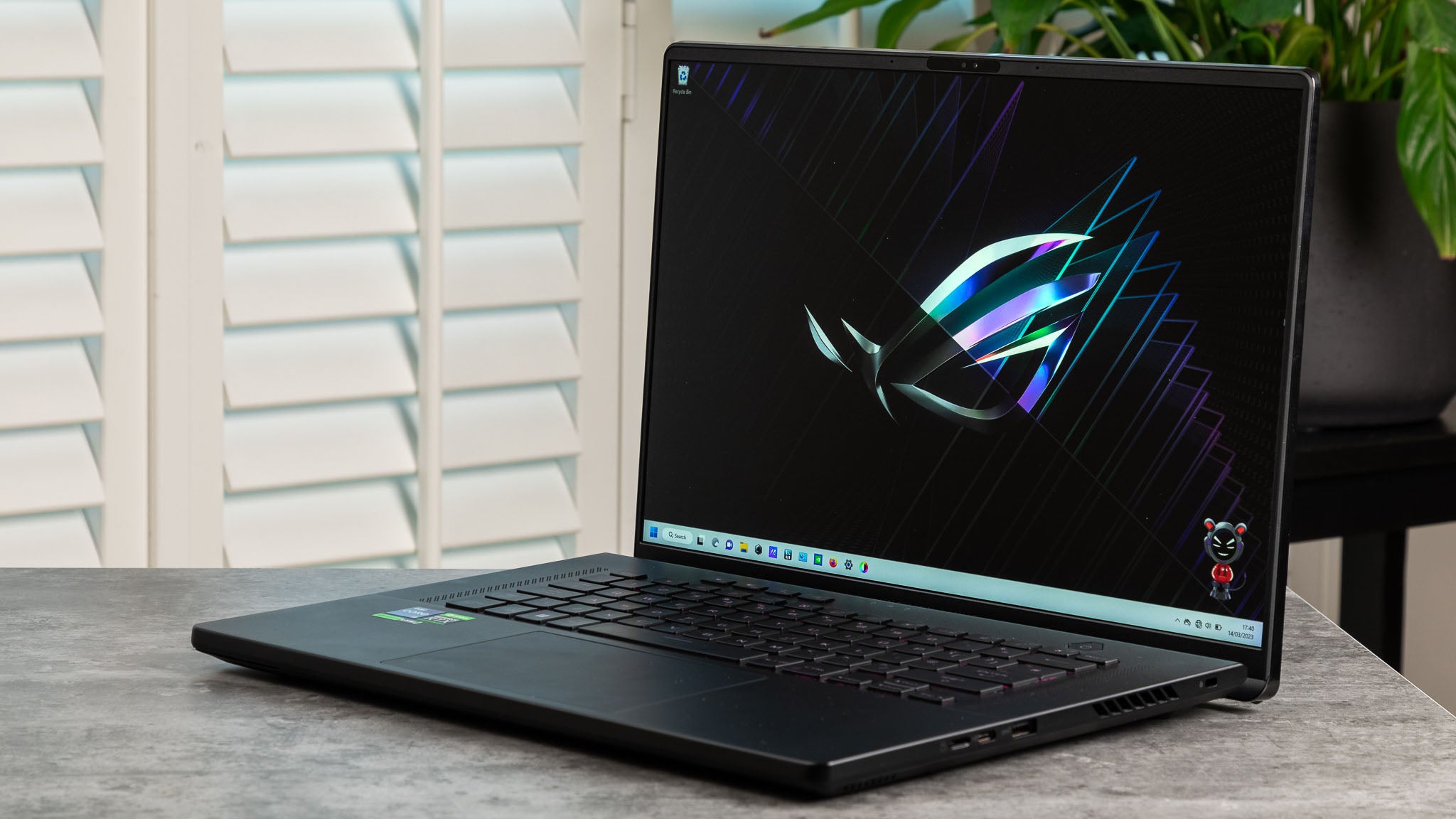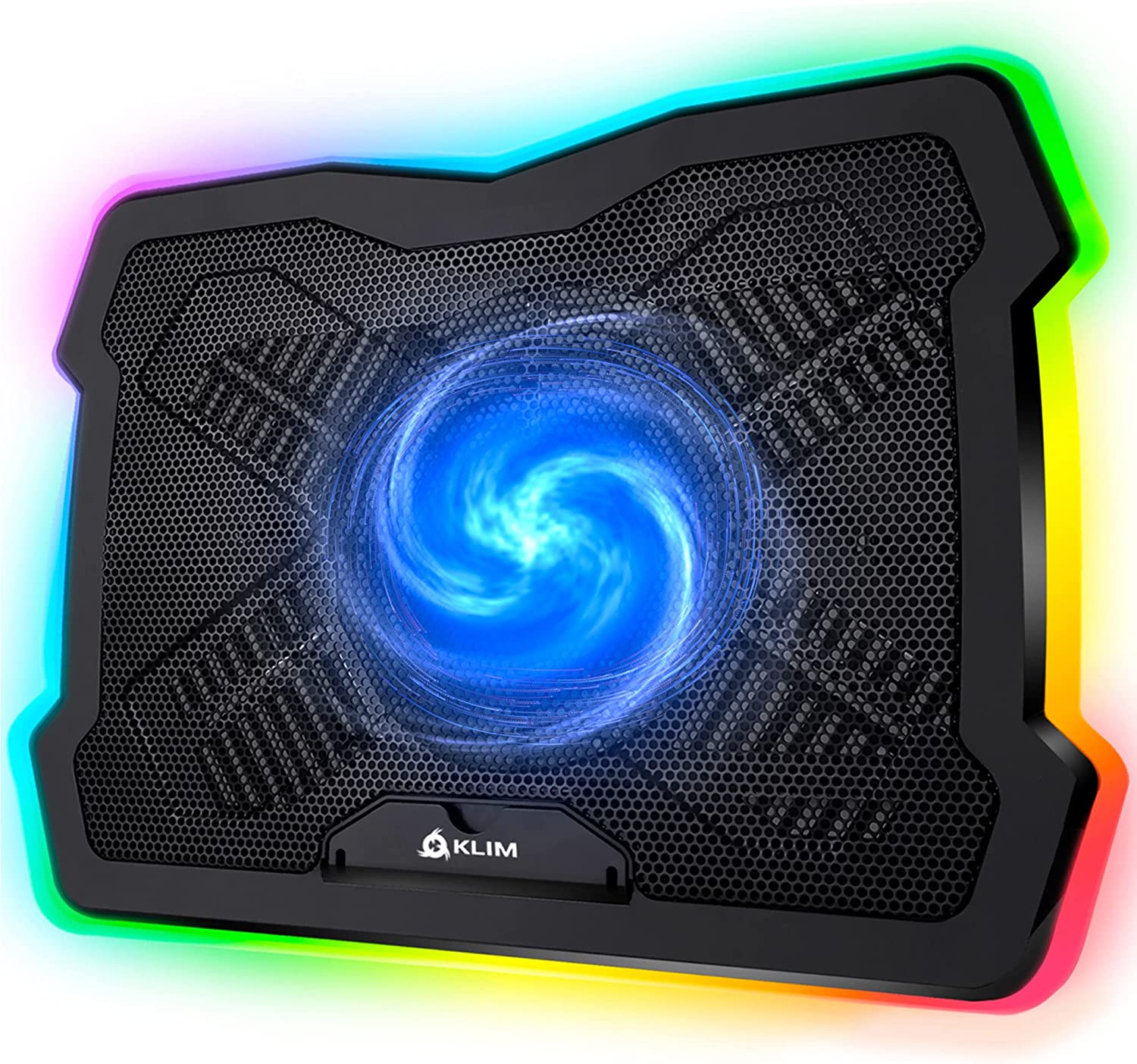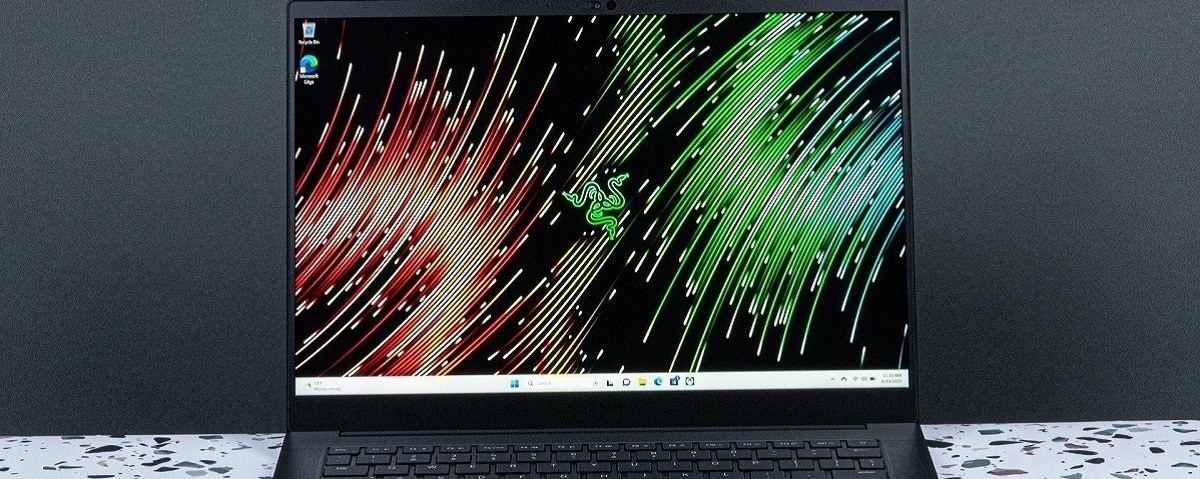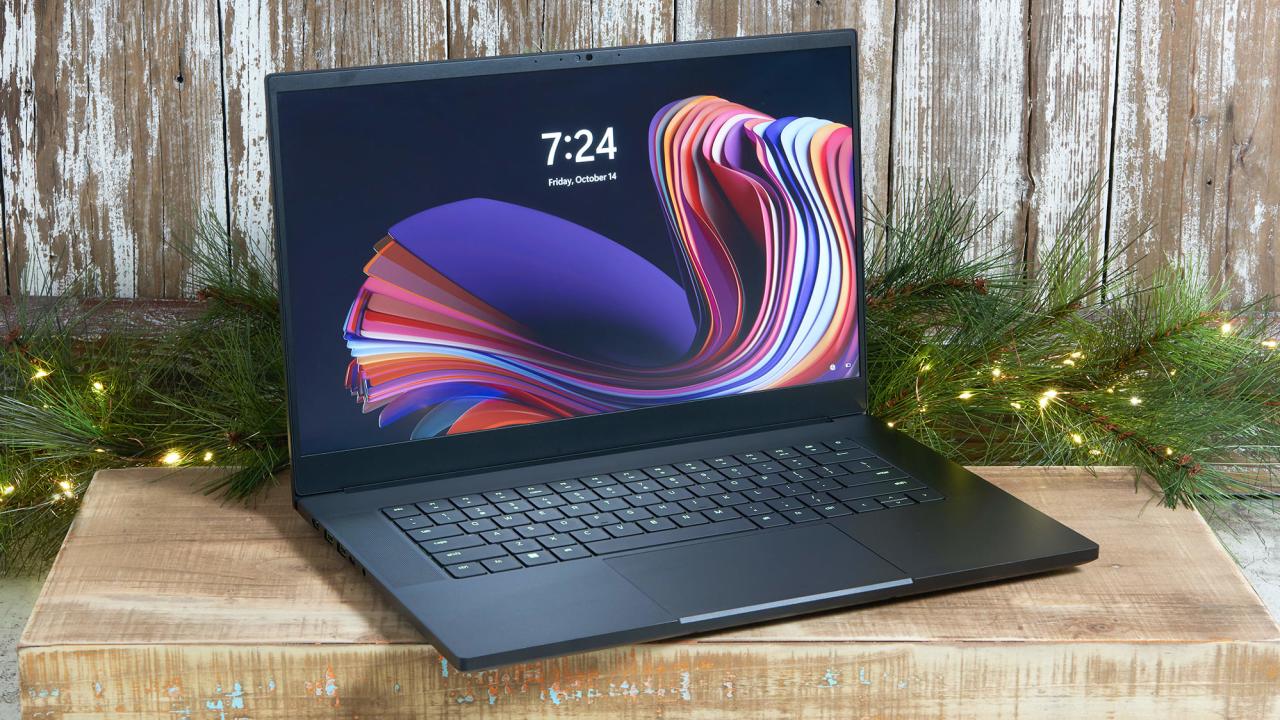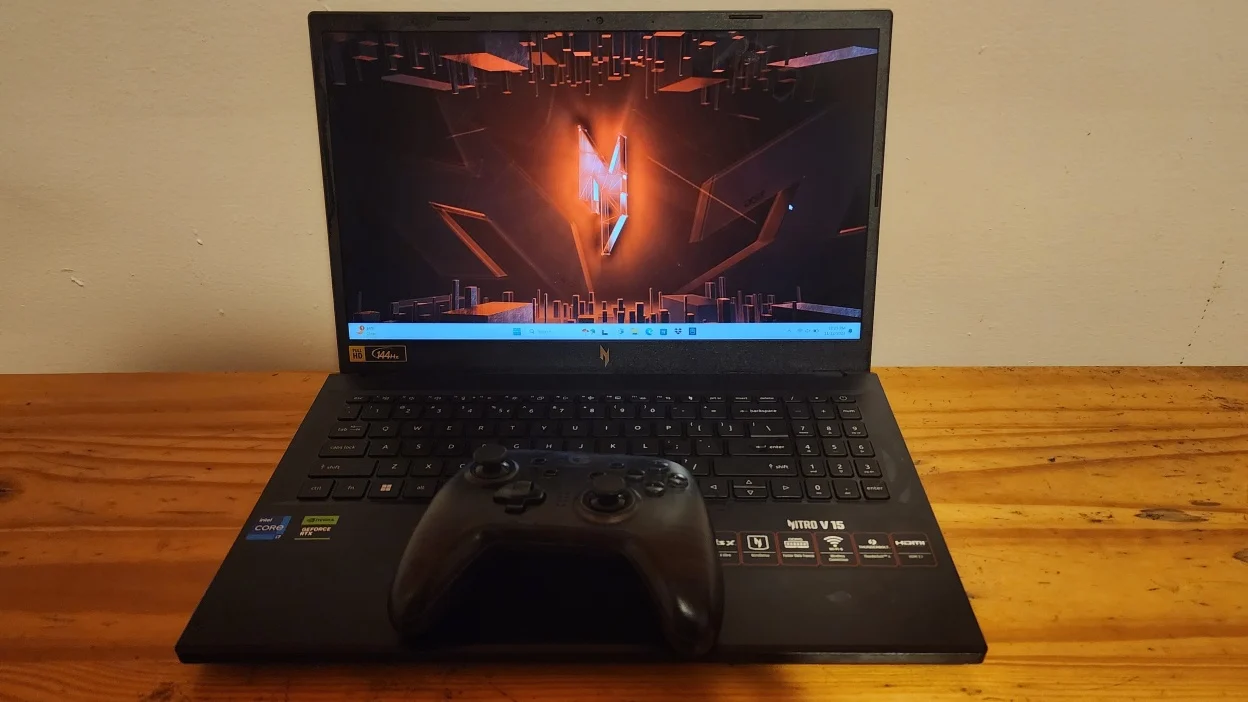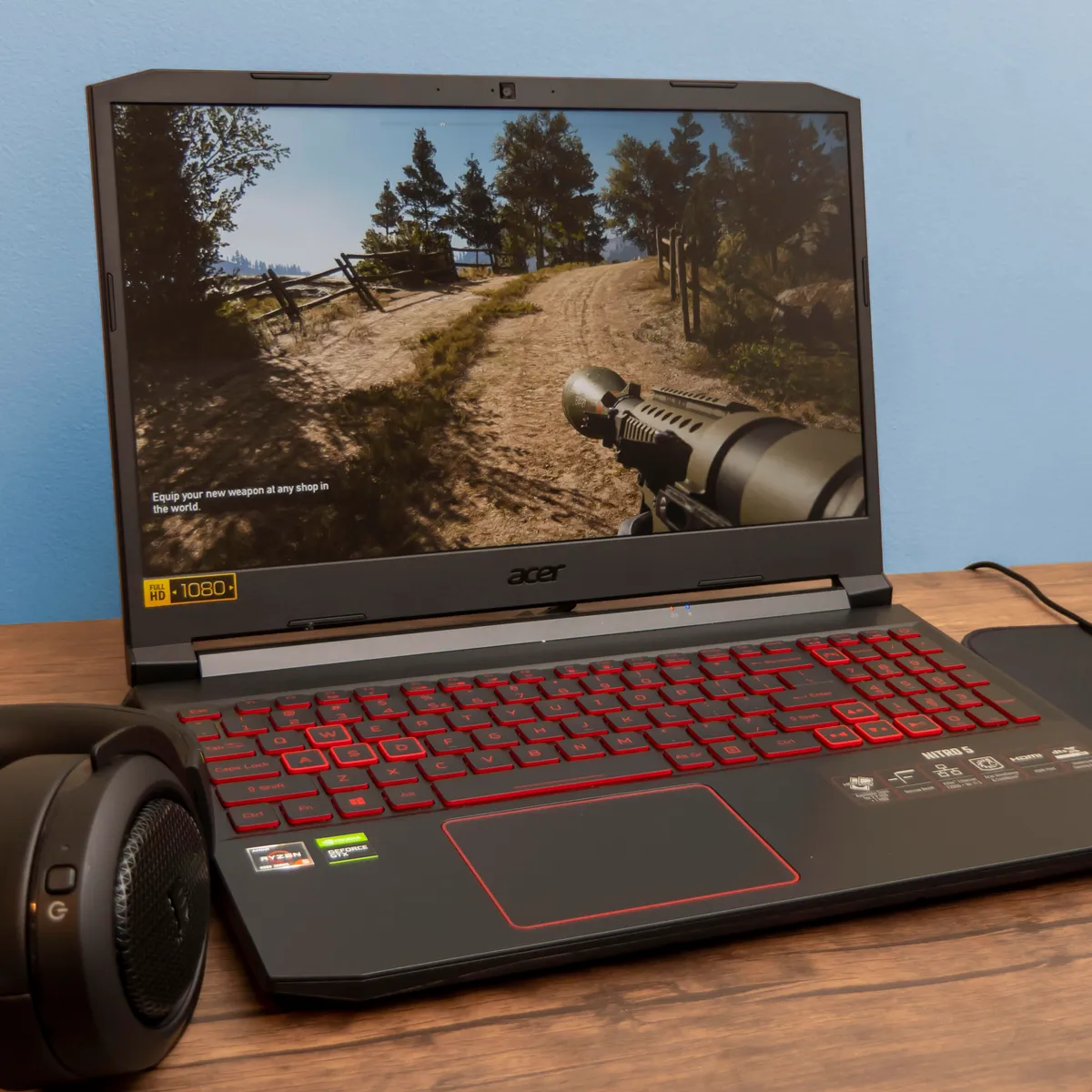Introduction
Gaming laptops have revolutionized the way we experience gaming, allowing us to play our favorite games wherever we go. However, one crucial aspect that gamers often consider when purchasing a gaming laptop is its weight. The weight of a gaming laptop can significantly impact its portability and comfort during long gaming sessions.
When it comes to gaming laptops, there is a wide range of weights to choose from. Some gaming laptops are lightweight, making them ideal for frequent travelers or those who value portability. On the other hand, there are heavyweight gaming laptops that prioritize performance and power over portability. Understanding the factors that affect the weight of a gaming laptop and finding the right balance is essential in making the right choice for your gaming needs.
In this article, we will explore the various factors that contribute to the weight of a gaming laptop, the average weight of gaming laptops on the market, and the benefits and considerations of lightweight and heavyweight options. By the end, you will have a better understanding of how weight plays a role in choosing the perfect gaming laptop that suits your needs and preferences.
So, whether you’re a hardcore gamer on the go or someone who enjoys gaming from the comfort of your own home, read on to discover more about the weight of gaming laptops and how it can impact your gaming experience.
Factors that affect the weight of a gaming laptop
The weight of a gaming laptop can be influenced by several factors, each contributing to its overall heft. Understanding these factors will help you make a more informed decision when selecting a gaming laptop. Here are the key factors that affect the weight of a gaming laptop:
- Screen Size: The size of the display is a significant factor in determining a gaming laptop’s weight. Larger screens, such as 17 or 18 inches, typically add more weight compared to smaller screens like 15 or 13 inches. This is due to the additional materials and components required to support a larger display size.
- Build Materials: The choice of build materials used in the construction of a gaming laptop plays a crucial role in its weight. Laptops made from lightweight materials like aluminum or carbon fiber tend to be lighter compared to laptops made from heavier materials like steel or plastic.
- Internal Components: The hardware components inside a gaming laptop, such as the processor, graphics card, and cooling system, can significantly impact its weight. High-performance components require more robust cooling systems, which can add to the overall weight of the laptop.
- Battery Size: A gaming laptop with a larger battery capacity will generally weigh more due to the additional cells required to provide longer gaming sessions without needing to be plugged in.
- Storage Options: The type and capacity of storage options, such as hard drives or solid-state drives, can contribute to the weight of a gaming laptop. SSDs, being lighter and more compact, are often preferred in modern gaming laptops.
- Additional Features: Gaming laptops may come with additional features such as RGB lighting, extra ports, or integrated speakers. While these features can enhance the gaming experience, they can also add extra weight to the laptop.
It’s important to keep in mind that these factors can vary between different laptop models and brands. Some manufacturers prioritize lightweight designs, while others prioritize performance, resulting in heavier laptops.
Now that we’ve explored the factors that affect the weight of a gaming laptop, let’s move on to discuss the average weight of gaming laptops and the benefits and considerations of lightweight and heavyweight options.
The average weight of a gaming laptop
When it comes to the average weight of a gaming laptop, it can vary depending on various factors such as screen size, build materials, and internal components. On average, gaming laptops tend to weigh between 4 to 8 pounds (1.8 to 3.6 kilograms). However, it’s important to note that these are just general guidelines, and there are exceptions on either end of the weight spectrum.
Gaming laptops with smaller screen sizes, such as 13 or 15 inches, often fall on the lighter side of the weight range, typically around 4 to 6 pounds. These laptops prioritize portability and are suitable for gamers who frequently travel or need to carry their laptop around for extended periods. They offer a good balance between performance and weight, making them a popular choice among gamers on the go.
On the other hand, gaming laptops with larger display sizes, such as 17 or 18 inches, tend to be heavier, ranging from 6 to 8 pounds. These laptops are designed for gamers who prioritize immersive gaming experiences and superior performance over portability. They often feature high-end hardware components and enhanced cooling systems, resulting in a heavier overall weight.
It’s important to consider your own needs and preferences when determining the ideal weight for a gaming laptop. If you plan to travel frequently or use your gaming laptop in various locations, a lighter option may be more suitable. Conversely, if you primarily use your laptop in a stationary environment, such as at home or in a gaming lounge, a heavier laptop with more powerful components may be a better choice.
Additionally, it’s worth noting that advancements in technology have led to the emergence of lightweight gaming laptops that offer impressive performance. These laptops utilize lightweight materials, efficient cooling systems, and energy-efficient components to reduce weight without compromising on power. For gamers who prioritize both portability and performance, these lightweight gaming laptops are an excellent option.
Ultimately, the average weight of a gaming laptop depends on various factors, and there is no one-size-fits-all approach. It’s essential to consider your specific gaming requirements, mobility needs, and personal preferences when selecting a gaming laptop with the right weight.
Now that we have explored the average weight of gaming laptops, let’s delve into the benefits and considerations of both lightweight and heavyweight options.
Lightweight gaming laptops
Lightweight gaming laptops have gained significant popularity among gamers who value portability and versatility without compromising on performance. These laptops offer a range of benefits that make them an attractive choice. Here are some of the advantages of lightweight gaming laptops:
- Portability: The primary advantage of lightweight gaming laptops is their portability. With a lighter weight, they are easier to carry and suitable for gamers who are frequently on the move. Whether you’re attending gaming competitions, traveling, or simply gaming at a friend’s house, a lightweight gaming laptop ensures that you can take your gaming experience with you, hassle-free.
- Increased Mobility: Lightweight gaming laptops allow for more flexibility in terms of where and how you can game. You can easily fit them into a backpack or carry them in a laptop case, making them ideal for gamers who need to commute or have limited space for a dedicated gaming setup. This mobility allows for gaming on the go, whether it’s at a coffee shop, during a flight, or while waiting for an appointment.
- Better Battery Life: One advantage of lightweight gaming laptops is that they tend to have better battery life compared to their heavyweight counterparts. Manufacturers often prioritize energy efficiency and optimize power consumption in lightweight models. With a longer battery life, you can enjoy extended gaming sessions without constantly needing to find a power outlet.
- Lower Heat Dissipation: Lightweight gaming laptops are designed with efficient cooling systems to manage the heat generated by powerful hardware components. These cooling systems help reduce the overall weight of the laptop while preventing excessive heat buildup during intense gaming sessions. As a result, lightweight gaming laptops can offer a comfortable gaming experience without excessive heat dissipation on your lap or gaming surface.
- Reasonable Performance: Despite being lighter, lightweight gaming laptops can still offer respectable performance levels. Advancements in technology have made it possible for manufacturers to integrate power-efficient processors and graphics cards into these laptops without sacrificing gaming capabilities. While they may not match the raw power of heavyweight gaming laptops, lightweight options can deliver smooth gameplay for many popular titles.
It’s important to consider that lightweight gaming laptops may have some limitations due to their compact size and lighter build. They may have fewer connectivity options, limited storage capacity, and smaller screens. However, for gamers who prioritize portability and versatility, these trade-offs are often outweighed by the advantages they offer.
Now let’s move on to the next section where we’ll explore heavyweight gaming laptops and their unique benefits and considerations.
Heavyweight gaming laptops
Heavyweight gaming laptops are known for their raw power and uncompromising performance. While they may be bulkier and less portable compared to their lightweight counterparts, there are several advantages to choosing a heavyweight gaming laptop:
- Superior Performance: Heavyweight gaming laptops are typically equipped with high-end hardware components that deliver top-notch performance. They feature powerful processors, dedicated graphics cards, and generous amounts of RAM, allowing for smooth gaming experiences even in demanding games or resource-intensive applications. If you’re a hardcore gamer who wants the best performance possible, a heavyweight gaming laptop is an excellent choice.
- Expanded Storage: Heavyweight gaming laptops often provide more storage options and greater capacity. This is particularly beneficial for gamers who have extensive game libraries, multimedia files, or other data-intensive applications. With larger hard drives or multiple SSDs, you’ll have ample space to store your games, videos, and other media without constantly worrying about running out of storage.
- Enhanced Display Sizes and Quality: Heavyweight gaming laptops frequently feature larger display sizes, with 17 or 18-inch screens being common. This larger display allows for a more immersive gaming experience, with greater visual detail and a wider field of view. Additionally, heavyweight gaming laptops often offer high-resolution displays and advanced display technologies, such as high refresh rates, G-Sync, or HDR, providing stunning visuals for your games.
- Advanced Cooling Systems: Heavyweight gaming laptops prioritize cooling systems that can efficiently dissipate heat generated by powerful hardware. These laptops often incorporate robust cooling solutions, such as multiple fans and heat pipes, to keep temperatures in check during intense gaming sessions. This ensures that your laptop operates at optimal performance levels without overheating.
- Expanded Connectivity: Heavyweight gaming laptops usually offer a wide range of connectivity options, including multiple USB ports, HDMI ports, DisplayPort outputs, and Ethernet jacks. These additional ports and connectivity options allow you to connect various peripherals, such as gaming mice, external monitors, and Ethernet cables, enhancing your gaming experience or facilitating a multi-monitor setup.
While heavyweight gaming laptops excel in performance and feature-rich capabilities, they are more suitable for gamers who prioritize power over portability. These laptops tend to be larger and heavier, making them less ideal for frequent travel or on-the-go gaming. They are better suited for gamers who have a dedicated gaming space or who primarily use their laptop at home or in a stationary environment.
Now that we’ve explored the benefits and considerations of both lightweight and heavyweight gaming laptops, let’s move on to the next section, where we’ll discuss how to choose the right weight for your gaming laptop.
How to choose the right weight for your gaming laptop
Choosing the right weight for your gaming laptop is a matter of considering your specific needs, preferences, and usage patterns. Here are some factors to consider when deciding on the ideal weight:
- Portability: If you need a gaming laptop that you can easily carry around for gaming sessions on the go, a lightweight option is recommended. Lightweight laptops are more travel-friendly and convenient for gamers who frequently move between locations.
- Performance: If you prioritize raw power and top-tier gaming performance, a heavyweight gaming laptop may be more suitable. These laptopsoften feature high-end hardware components that can handle cutting-edge games and demanding applications with ease.
- Gaming Environment: Consider where you typically use your gaming laptop. If you have a dedicated gaming space with a desk setup, a heavier laptop may be more manageable. However, if you often game in different environments or on the go, a lighter laptop will be more convenient.
- Battery Life: If you plan on gaming without access to a power outlet for extended periods, consider a lightweight laptop with a longer battery life. These laptops are designed to optimize power consumption and provide more hours of gaming on battery power.
- Screen Size: The size of the display is a personal preference, but it can impact the overall weight of the laptop. Choose a screen size that suits your gaming needs and comfort while considering the added weight of larger displays.
- Budget: Your budget will also play a role in determining the weight of your gaming laptop. Typically, heavier laptops with more powerful components tend to be more expensive. However, there are lightweight options available that offer impressive performance at a more affordable price point.
It’s crucial to strike a balance between weight and performance when choosing a gaming laptop. Consider your specific gaming requirements, mobility needs, and gaming environment to make an informed decision. Ultimately, the right weight for your gaming laptop is subjective and depends on your individual preferences.
Take the time to research and compare different models, read reviews, and consider the specifications and features that matter most to you. By doing so, you’ll be able to find a gaming laptop that strikes the perfect balance between weight, performance, and portability.
Now that we’ve discussed how to choose the right weight for your gaming laptop, let’s wrap up this article with a summary of the key points discussed.
Conclusion
Choosing the right weight for your gaming laptop is an important decision that can impact your gaming experience and mobility. Whether you opt for a lightweight or heavyweight gaming laptop, there are benefits and considerations to keep in mind.
Lightweight gaming laptops offer portability, increased mobility, better battery life, lower heat dissipation, and reasonable performance. These laptops are ideal for gamers who are constantly on the move or require a portable setup.
On the other hand, heavyweight gaming laptops prioritize superior performance, expanded storage, enhanced display sizes and quality, advanced cooling systems, and expanded connectivity options. They excel in raw power and feature-rich capabilities, making them suitable for gamers who prioritize performance over portability and have a dedicated gaming environment.
When choosing the right weight for your gaming laptop, consider factors such as portability, performance, gaming environment, battery life, screen size, and budget. Finding the perfect balance that aligns with your individual gaming requirements and lifestyle will ensure an optimal gaming experience.
Remember to research and compare different models, read reviews, and consider the specifications and features that matter most to you. By doing so, you’ll be able to select a gaming laptop that meets your needs and preferences.
Whether you choose a lightweight or heavyweight gaming laptop, the ultimate goal is to find a device that enhances your gaming experience and allows you to enjoy your favorite games wherever you go. So, weigh your options (pun intended!) and make a decision that suits your gaming style and lifestyle.
Now that you have a better understanding of the factors affecting the weight of gaming laptops and the advantages of both lightweight and heavyweight options, you can confidently embark on your journey to find the perfect gaming laptop that will elevate your gaming experiences to new heights.










